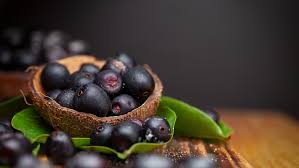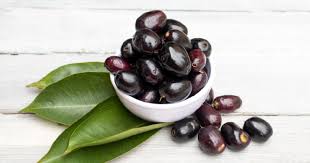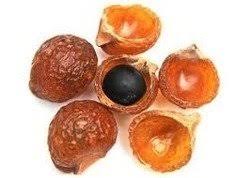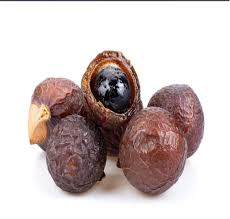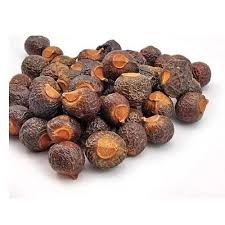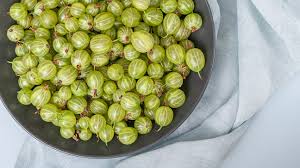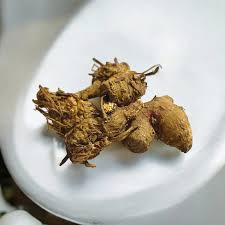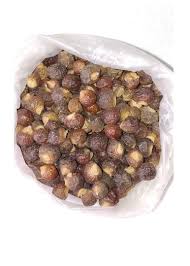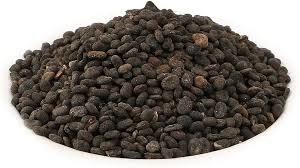
The Antibacterial Benefits of Babchi Seed for Skin
In the world of Ayurveda and holistic skin healing, one powerful herb continues to stand out — Babchi seed, also known as Bakuchi or Psoralea corylifolia. At Dirghaanshi, where we celebrate the rich healing legacy of Jadi Buti, we bring to light the lesser-known but incredibly powerful antibacterial benefits of Babchi for the skin. Whether you struggle with acne, skin infections, or inflammatory conditions, Babchi offers a natural, plant-based solution that has stood the test of centuries.
Modern skincare is often overwhelmed with harsh chemicals that promise fast results but may cause long-term damage. Babchi, on the other hand, provides gentle yet effective antibacterial action, detoxifying the skin, calming inflammation, and preventing bacterial build-up — all while promoting radiant and healthy skin. In this detailed post, we explore how Babchi works as a natural antibacterial agent, its Ayurvedic significance, how to use it safely, and why it’s becoming a staple in holistic skin remedies.
🌱 Long Description
✅ What is Babchi (Bakuchi)?
Babchi is derived from the Psoralea corylifolia plant, native to India. In Ayurveda, it is renowned as a Kushtaghna herb — a category dedicated to treating skin ailments. Traditionally used to manage conditions like eczema, vitiligo, acne, and leprosy, Babchi seeds are packed with medicinal compounds such as Psoralen, Bakuchiol, flavonoids, and essential oils, all of which contribute to its strong antibacterial and antifungal properties.
💠 The Antibacterial Power of Babchi: How It Works
Babchi acts as a natural shield against a variety of bacteria that commonly affect human skin. It not only helps prevent infections but also assists in speeding up the healing process of existing wounds and lesions.
🌿 1. Kills Acne-Causing Bacteria (Propionibacterium acnes)
Babchi seed contains compounds that directly inhibit acne-causing bacteria, reducing pimples, blackheads, and inflammatory breakouts. It helps clear clogged pores without drying out the skin like chemical-based acne treatments.
🌿 2. Fights Skin Infections
Its antimicrobial nature makes it highly effective against fungal and bacterial infections such as ringworm, athlete’s foot, and folliculitis. Applying Babchi oil or paste can soothe the affected area and speed up healing.
🌿 3. Cleanses and Purifies the Skin
Regular use of Babchi in skincare removes bacteria and toxins from the skin surface. It reduces bacterial colonization, especially in sweat-prone areas, and supports a balanced skin microbiome.
🌿 4. Soothes Inflammatory Skin Conditions
Its anti-inflammatory and antibacterial combination makes Babchi ideal for treating eczema, psoriasis, and dermatitis. It calms the skin while preventing further infection or flare-ups.
🌿 5. Accelerates Wound Healing
Babchi promotes the regeneration of skin cells, helping in the quick recovery of cuts, wounds, and bacterial lesions. It also reduces scarring by promoting healthy tissue growth.
🧴 How to Use Babchi for Antibacterial Skin Benefits
🔹 Babchi Oil (Topical Use)
How to Use:
Dilute 2–3 drops of Babchi oil with a carrier oil like coconut or sesame oil. Apply it directly to the affected area after cleaning the skin. Use it once daily.
Benefits:
Treats acne and skin infections
Prevents bacterial buildup
Soothes inflammation
🔹 Babchi Face Pack for Acne & Blemishes
Ingredients:
1 tsp Babchi powder
1 tsp neem powder
Rose water or aloe vera gel to mix
How to Use:
Apply on clean skin, focusing on problem areas. Leave for 15–20 minutes and wash with cool water.
Benefits:
Removes bacteria
Tightens pores
Fades acne scars
🔹 Babchi Seed Infused Toner (DIY Herbal Water)
Soak Babchi seeds in boiled water and let it cool overnight. Strain and use this water as a skin toner or rinse. It helps in daily cleansing and antibacterial protection.
⚠️ Precautions & Safety Tips
Photosensitive: Avoid sunlight after applying Babchi to the skin, as it can increase sensitivity to UV light. Use it at night or wash off before going outside.
Patch Test: Always do a patch test before using any herbal preparation to avoid allergic reactions.
Avoid on Open Wounds: Do not apply undiluted Babchi oil on open wounds without medical guidance.
🧘♀️ Ayurvedic Perspective on Babchi & Skin Disorders
In Ayurveda, skin infections are usually caused by imbalances in the Kapha and Pitta doshas. Excess Kapha leads to oily skin and bacterial growth, while excessive Pitta causes inflammation and rashes. Babchi’s Tikta (bitter) and Katu (pungent) tastes with Ushna virya (hot potency) help detox the body, balance both doshas, and eliminate the root cause of skin issues.
🌸 Other Skin-Healing Herbs That Work Well with Babchi
Neem: Powerful antibacterial and blood purifier
Turmeric: Anti-inflammatory and scar-lightening
Manjistha: Improves blood circulation and detox
Aloe Vera: Soothes, hydrates, and promotes healing
Sandalwood: Reduces inflammation and adds natural glow
These herbs can be combined with Babchi in homemade face masks, toners, or serums for enhanced antibacterial and skin-repairing benefits.
🌿 Why Choose Dirghaanshi for Herbal Skincare Wisdom?
At Dirghaanshi, we go beyond trends and tap into the timeless healing of Jadi Buti — especially those like Babchi that have centuries of proven results. We believe true beauty begins with nature, and your skin deserves gentle, herbal-based healing over harsh chemical quick-fixes. Our mission is to bring you authentic Ayurvedic insights that work in harmony with your body and the Earth.



